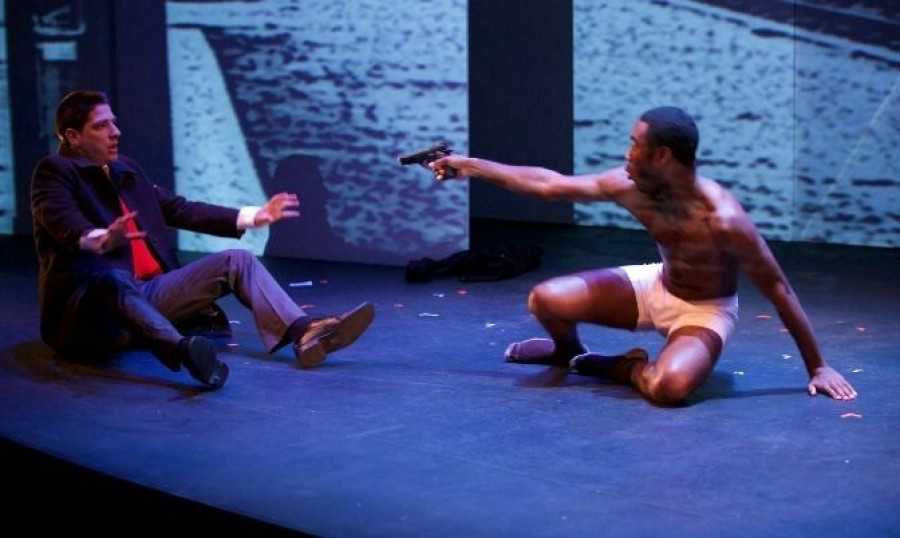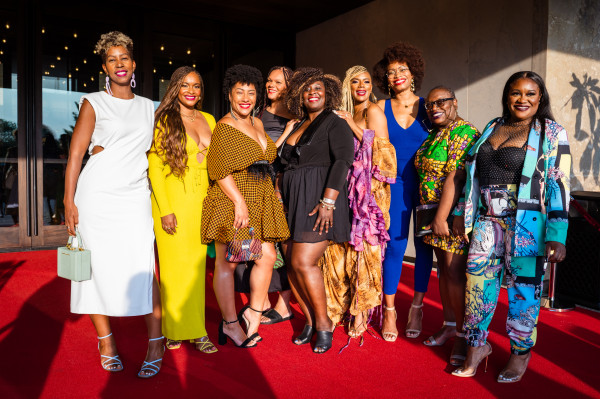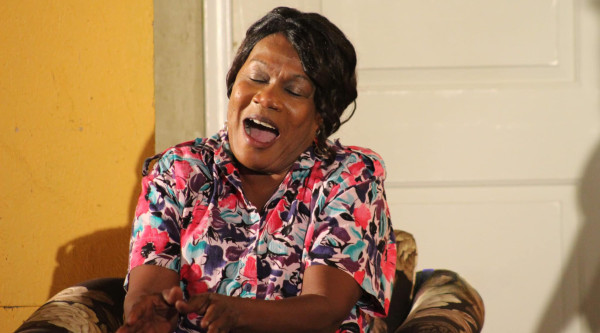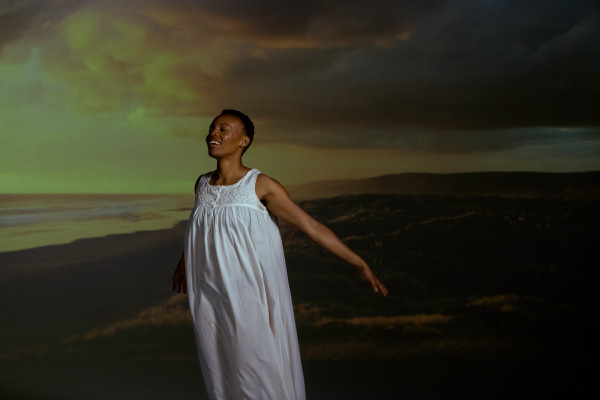Each night since the festival opening, I was consumed with going onto the stage and telling the story with my scene partner, Sheree Spencer. After, I would promptly head home, often dissecting my performance or looking for opportunities to infuse my character, Larry Levan - a 1980s NY DJ, with more oomph as he navigates the inevitable end of an era of disco music he holds dear.
Following our fourth performance, both Sheree and I took the time to enjoy some of the other festival offerings and what a treat it was for me to see the Red Show, a collection of 10-minute plays. I wasn’t sure what to expect, and there was lots of buzz about the “darkness” of this show. What a surprise I had.
Light and romantic, Meeting Mr Right is a story of a neurotic man on a potential blind date, exhibiting all the insecurities one feels when placed in such an emotionally uncomfortable situation. Scott Labonte and Kevin Chew were beautifully matched and exhibited such chemistry that soon my own narrow gaze was dropped, and I sat back in my chair and enjoyed this romantic comedy unfold. Stephan DeGhelder’s penmanship and Nick May’s direction were wonderfully mixed, complemented by the visual installation of a theatre backdrop.
Call Raul, is a much different play from the first. Set in what felt like an ethnic urban New York at any time in history, this play was held together by Peter Mazzucco’s Rozzelli, as he encounters the mysterious Raul, who has entrenched himself conveniently in all aspects of this society. Almost a character in itself, the visual effects place us exactly where it wants us to be as Rozzelli journeys through his torrid adventure of mishap after mishap that usually leads back to Raul. The play feels like a much larger piece with many colourful characters intricately woven in Rozzelli’s life. A notable mention is Tracy Jennissen who seamlessly transforms herself between three different characters, intact with accents and characterisation much different from one another. Joseph Borini has a story that can have as much of an impact on ethnic audiences as the movie My Big Fat Greek Wedding. Sarah Finn does a wonderful job of making a large project fit in a manageable time.
In Leo Rising, I kept hoping for more characters to populate the stage aside from the one-woman monologue showcase that was Sharleen as played by Liz Laywine. Albeit, Liz uses the stage magnificently as she careens through her sad experience. I found myself waiting for the love that propels the character into her ultimate spiral but soon settle for the broad strokes of a jilted bride that lead to a jarring and unjustified end.
Broken Windows was a pleasant departure that pits two equally stereotyped men in the middle of a feud that ultimately leads to police intervention. While collecting the remnants of belongings, the wives of these men soon discover hidden truths about their relationships and unravel the compromises each had to make in their respective families. As a first time playwright, Fiona Raye Clarke demonstrates an acute ability to finesse the often-difficult task of cultural disconnect between police and people of colour. She also paints an uncomplicated picture of the fractured relationships women are placed in. The cast was perfect as played by Marina Moreira, Anthony Morgan, Aisha Mentham and Basel Daoud while the direction by Chiamaka G. Ugwu ties it all together with wonderfully choreographed fights.
If nothing else, there was a foreboding to watching The Ugly. But much love and care was place in the set design of this play, a picture perfect replica of a doctor’s office. This picture was enhanced by the performance of the two talented actors Alex Bortoluzzi and Lavetta Griffin, doctor-patient relationship. From the beginning, there was an ease in which the performance developed. It was a thoughtful work, moment to moment and seamless in its execution. It let the audience feel as through they were invading a private session reserved only for the doctor-patient. Tabitha Keast has certainly penned a story so personal and raw that by the end, the molecules in the air are shifted uncomfortably. Sarah Finn captures this unease in her direction.
The Twelve-Forty by Barry Brodsky is another play that tackles the disconnect between races and the often uncomfortable outcome when stereotypes push people too far. Both Cameron Grant and Rob Renda are great in their respective roles, each bringing a genuine sweetness to their characters that leaves us uncertain about who to root for. Whether it is the writing, acting or direction from yet again Chiamaka G. Ugwu, the play wraps itself up nicely. Chiamaka G. Ugwu demonstrates a great ability to tackle heavy topics both dramatically as well as comically.
The last play was the farcical Border Lines pitting four roommates against each other as each claim a space in their cramped apartment. Lighthearted, this play was a great finish that balances the earlier heavy content with the light. William S. Coleman’s writing demonstrates simplicity and by all accounts, funny is money. Chris Pereira, Austin Leggett, Irene Theocharis and Katie Witkowski each hold their own in what could have been a one sided piece giving us a great ensemble performance as directed by Erin O’Hanley.
A gift was the final piece Ten played by Farah Farah, Irene Theocharis, Tom Beattie, Natalie Bazar and Dominik Loncar. Dominik, the festival creator plays the narrator, summarizing the 10 years of the festival existence and projecting what we can possibly expect in the future.






![[REVIEW] "Random"](/media/k2/items/cache/88f8f2b43d0833f0d7a890636dcf72fe_S.jpg?t=20200828_180307)
![[REVIEW] Grade 8 Brings Home Glowing Report Card](/media/k2/items/cache/ed0b0c31c412f7d67bd39119503bb394_S.jpg?t=20200904_174918)


